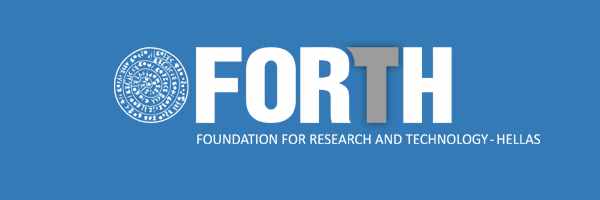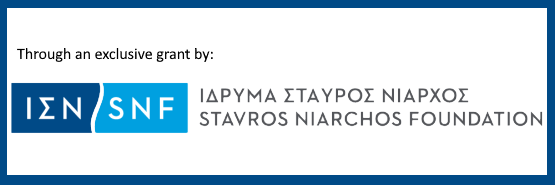Ref. 7921 Heraklion 14/5/2019
The Institute of Electronic Structure and Laser (IESL) of the Foundation for research and Technology Hellas (FORTH), in the framework of the project ARCHERS, which is funded by an exclusive donation of the Stavros Niarchos Foundation, is seeking to recruit one (1) Ph.D. candidate.
The project aims at reducing or even reversing the brain drain by providing high quality research opportunities to young scientist of Greek origin.
Job Description The Ph.D. candidate awarded this Stavros Niarchos Foundation – FORTH fellowship is expected to perform high quality research within one of the research areas, in which FORTH-IESL excels both on the national and the international level (http://www.iesl.forth.gr/). More specifically, the domains of interest in the present project are the preservation of cultural heritage and the science and innovation in the areas of environment, clean energy and health.
Eligibility Criteria
B.Sc. degree in Physical Sciences or Engineering
M.Sc. degree in Physical Sciences or Engineering
Good knowledge of Greek and English language
Evaluation Criteria
Grade Point Average (G.P.A.) of the undergraduate studies
Grade Point Average (G.P.A.) of the M.Sc. studies
Publications in high impact peer-review journals
Participation in national and international conferences
Quality of the proposed project
According to international practice, the academic age will be taken into consideration as a selection criterion. The fellows should have started/or be about to start their Ph.D. studies but should not have completed their 3rd year. Preference will also be given to Ph.D. candidates, who are under 30 years old.
Location: IESL-FORTH, Heraklion Crete GREECE
Start Date: 1st of August, 2019
Duration of appointment: 12 months (with possibility of extension according to the needs of the project).
Application Submission Interested candidates who meet the aforementioned requirements are kindly asked to submit their applications, no later than the 15th of June 2019, 23:59 local time (Greece) to the address hr@iesl.forth.gr with cc. to the address georgina@iesl.forth.gr.
In order to be considered, the application must include:
Filled-in Application Form (https://www.iesl.forth.gr/en/jobs-bids/jobs/job-positions)
Detailed curriculum vitae (CV) of the candidate
Statement of purpose with a proposed project in a specific sub-area of research and a relation to the appropriate scientific advisor (maximum 2 pages)
Copies of academic titles/transcripts
Language certificates
University department certificate for enrollment in a PhD program
At least one reference letter sent by the supervisor/employer directly to georgina@iesl.forth.gr and hr@iesl.forth.gr
Any application received after the deadline will not be considered for the selection
Contact For information and questions regarding the application and selection procedure, candidates are asked to contact Dr. Georgina Kaklamani (georgina@iesl.forth.gr, tel. +30 2810-391355).
Selection Announcement The result of the selection will be announced on the website of IESL-FORTH (https://www.iesl.forth.gr/en/jobs-bids/jobs/job-positions). Candidates have the right to appeal the selection decision, by addressing their written objection to the IESL secretariat within five (5) days from the results announcement on the web. They also have the right to access their evaluation. The information related to the selection procedure will be available at the secretariat of IESL-FORTH in line with the Hellenic Data Protection Authority.
GDPR FORTH is compliant with all legal procedures for the processing of personal data as defined by the Regulation EU/2016/679 on the protection of natural persons with regard to the processing of personal data. FORTH processes the personal data and relevant supporting documents that you have submitted to us. Processing of that data is carried out exclusively for the needs and purposes of this specific call. Such data shall not be transmitted to or communicated to any third party unless required by law. FORTH retains the above data up to the announcement of the final results of the call, unless further process and reservation is required by law or for purposes of exercise, enforcement, prosecution of certain one’s legitimate legal rights’ as defined in the Regulation EU/2016/679 and/or in national law. We inform you that under the Regulation EU/2016/679 you have the rights to be informed about your personal data, access to, rectification and erasure, restrictions of process and objection to as provided by applicable regulation and national laws. We acknowledge also to you, that you have the right to file a complaint to the national Data Protection Authority. For any further information regarding exercise of your personal data protection rights, you may contact the Data Protection Officer at FORTH at dpo@admin.forth.gr. You have the right to withdraw your application and consent for the processing of your personal data at any time. We inform you that, in this case, FORTH shall destroy such documents and/or supporting documents submitted and shall delete the related personal data.

